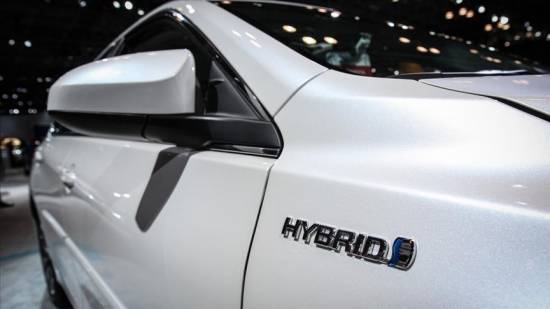Global electric vehicle (EV) sales in 2020 increased by a record 43% to 3.24 million with Europe and China becoming the biggest markets, according to recent data from EV-volumes.com, a database on global electric vehicle sales.
Despite a 14% contraction in global automotive sales last year due to the economic downturn from the COVID-10 pandemic, International Energy Agency (IEA) data shows that sales of EVs grew.
EV sales boomed from July 2020 onwards despite a slow start in the first half of 2020 compared to the same period of 2019, the IEA data showed.
Europe registered nearly 1.39 million electric vehicles in 2020, marking a massive 137% year-on-year rise, according to EV-volumes.com data. This was due to a combination of new attractive models, incentive boosts by green recovery funds thanks to Europe's carbon emission reduction targets and much-improved availability of electric vehicles.
China followed with 1.33 million electric vehicle sales, indicating a 12% rise compared to the previous year. However, EV sales in the US increased by a meager 4% with 328,000 during the same period, according to the data.
Markets in Japan, Canada and Australia also showed declines in EV sales in 2020, although the EV market was more resilient to the pandemic than the auto markets in general.
- Over 10 million electric vehicles on roads
With the record-breaking increase in electric vehicle sales in 2020, more than 10 million electric cars are now on the roads across the globe, according to the IEA.
The global market share of electric vehicles rose by over 4% in 2020 from its 2.5% level in 2019.
However, the IEA in its analysis inferred that there is still a long way to go reach emissions goals.
"The share of electric cars in global car sales must climb to around 50% by 2030 to be aligned with a pathway to net-zero emissions by 2050," the Agency said.
The main challenges to be faced in the programs for 2021 and beyond will be to continue implementing and tightening the broader regulatory instruments, such as the European Union’s CO2 emissions regulation for cars and vans, China’s mandate or California’s zero-emission vehicle mandate and reinforcing the electric vehicle ecosystem that will determine long-term deployment of electric vehicles, the IEA said.
This year the number of electric vehicle sales worldwide is expected to reach 4.6 million with higher growth in North America and China, EV-volumes.com data showed. This would mark an increase of around 42% compared to the 2020 sales.
The near-term efforts must continue to effectively support electric vehicle competitiveness while gradually phasing out purchase subsidies as sales volumes continue to expand. It is also imperative to adapt these approaches to the COVID-19 crisis response so as to stimulate the automotive sector in agreement with long-term transport decarbonization objectives," it continued./aa


